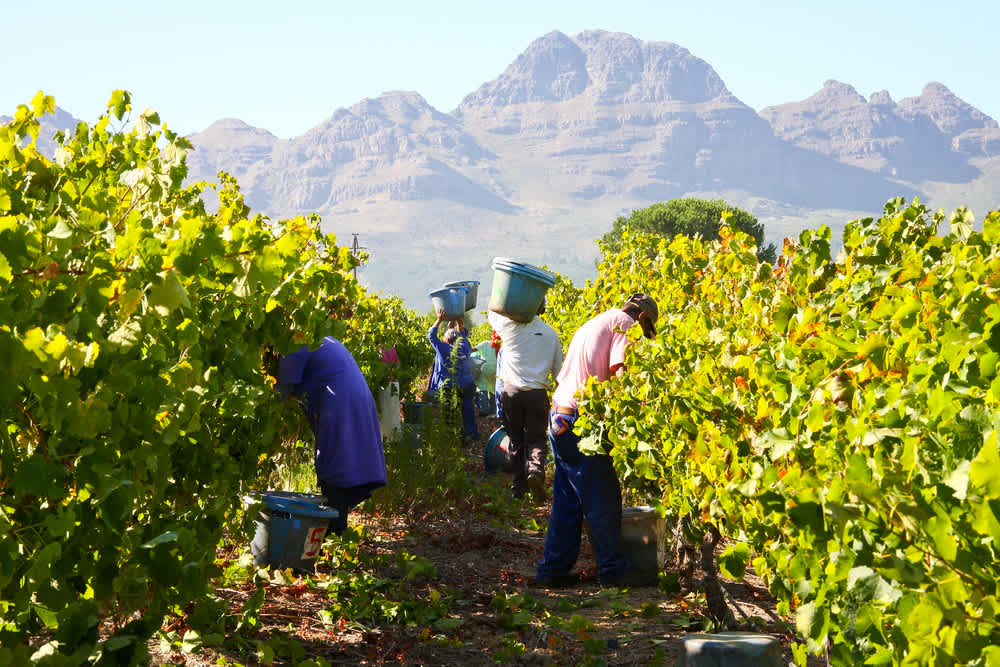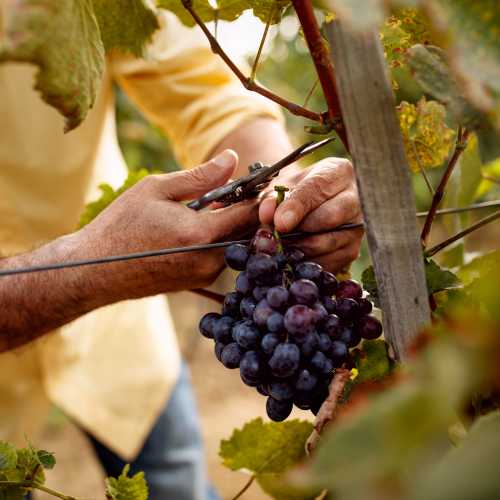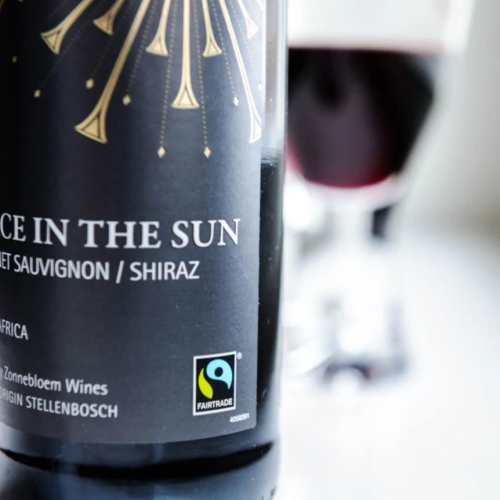
Spreading the fair message
Fairtrade improves the economic status of farmers and workers in developing countries. Fairtrade wines have become a recognized trend in the beverage industry, and they offer wine consumers a reliable way of making ethical purchasing decisions. Anora aims to ensure the responsibility of its wine production through Fairtrade’s certification programme.
One of the ways Fairtrade promotes fair trade and advances the economic position of small farmers and agricultural workers in developing countries is its certification system. The fair trade label can be used by responsible agricultural producers whose farms have, among other things, humane working conditions and wages that comply with the law. Exploitation of child labour and forced labour is prohibited.
In addition to the certification system, Fairtrade supports and trains farmers and workers, for example, in the development of efficient and sustainable production methods. In the Nordics and in other rich countries, Fairtrade actively promotes responsible consumption and does continuous advocacy work with companies and decision-makers to build more fair trade rules and a more just trade system overall.
Buying Fairtrade also benefits the environment
In addition to improving the living standards of farmers and agricultural workers in developing countries, Fairtrade also aims to promote the well-being of the environment.
In the fair trade certification system, producers must meet certain criteria, nearly a third of which concern the environment. In order for farms to be able to sell their products with the Fairtrade label, they must protect forests as well as reduce emissions, energy and water consumption and the use of pesticides and fertilizers, among other things.
These requirements aim both to curb climate change and to support producers' in adapting to the changes caused by global warming. The starting point of Fairtrade is to provide producers with tools, such as education and a better livelihood and negotiating position, with which they can themselves make changes towards more sustainable production methods.
Fairhills - a Fairtrade success story
Fairhills is one of the most successful Fairtrade projects in the wine industry. Fairhills' goal has been to improve the quality of life of winery workers and their families in South Africa. In the video produced by Anora in Sweden, Charlotte tells what Fairtrade has meant for her village.
3 quick tips to choosing sustainable wines

1. Opt for environmentally friendly wines
Organic and biodynamic production aims towards positive environmental effects. In the EU, wines with organic certificates have been cultivated and produced in compliance with official regulations for organic production. Thus, for example, chemical pesticides are not used in the cultivation of wine and the maximum amount of sulphites permitted in the final product is lower than in ordinary wine. Sulphites always occur naturally in wine production, but they are also added to many wines to improve shelf life.

2. Choose an ethically certified wine
Ethical trade is based on the idea that farmers and workers are paid fair compensation for their work and that working conditions are decent. Especially in developing countries, wine production has its challenges, just like the production of other products, such as bananas or cocoa. These are often related to working conditions and pay. Ethical trade certificated, such as Fairtrade, Fair for life and For life, ensure that workers are paid a legal wage and international agreements on workers' rights and national laws are followed in the wine’s production process. Look for ethical trade certificates in Chilean, Argentinian and South African wines.

3. Pay attention to packaging
Packaging accounts for approximately 25% of the environmental impact caused by wine. Almost half of this comes from the manufacture of glass. A plastic PET bottle weighs only one-tenth of a regular glass bottle saving energy and lowering the product’s carbon footprint. The most environmentally friendly packaging option, however, is the Bag-in-Box or BiB: its transporting produces less emissions thanks to its compact shape and since more wine can be transported at a time. In many BiBs, material recyclability has also been taken into account.